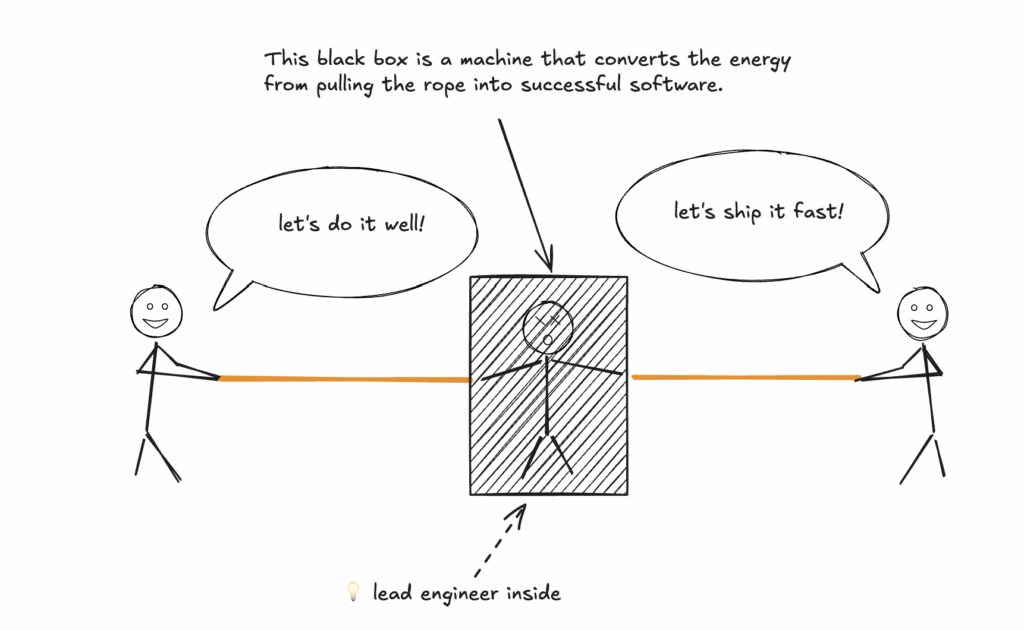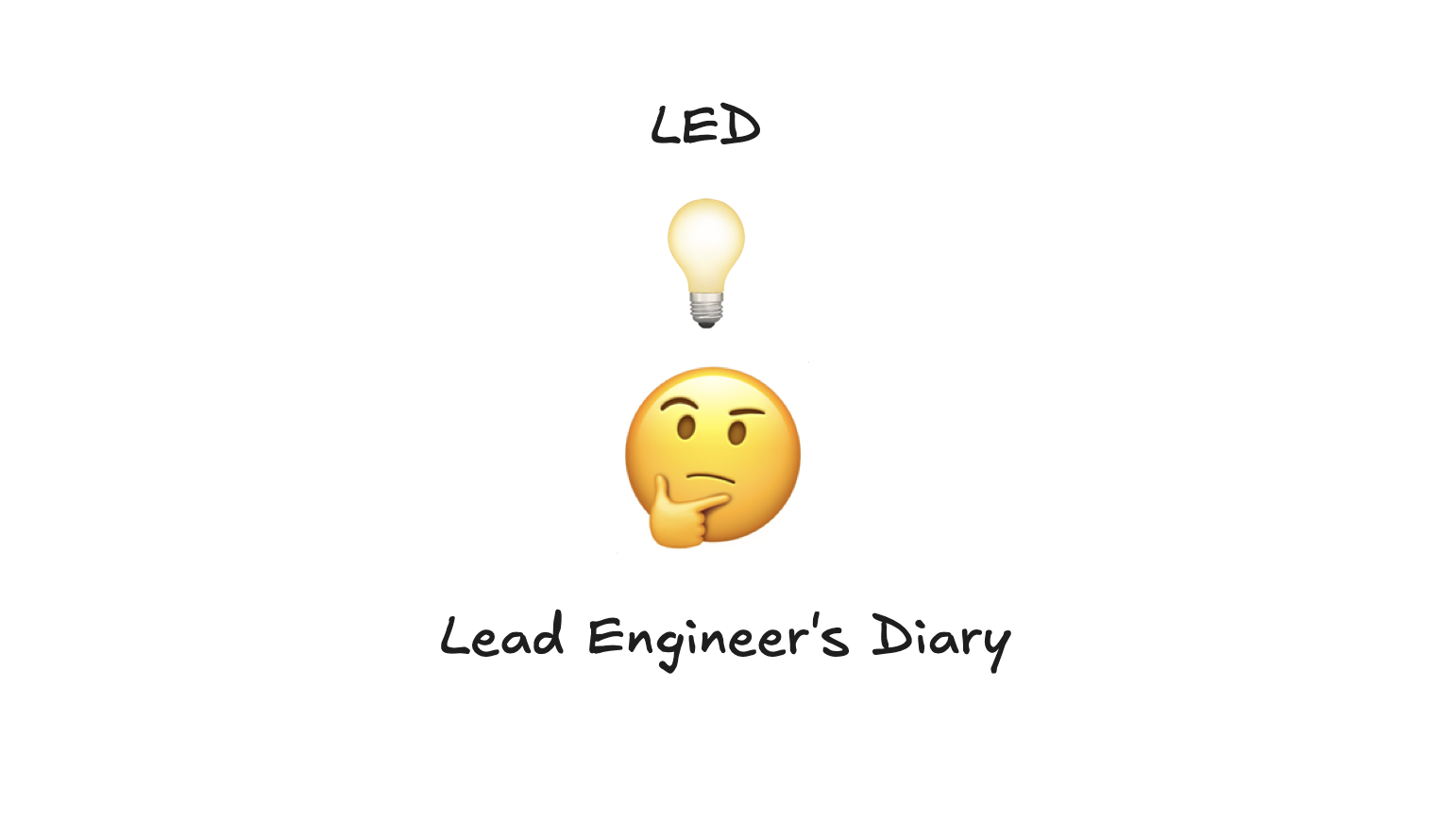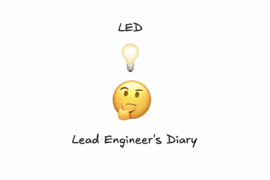Dear diary, today I learned that
with so many competing priorities you will for sure disappoint someone.
Disappointing someone is part of the job
Becoming a lead engineer means being exposed to more of everything: more people, more requests, more perspectives, and more contradictions. As an individual contributor, I could focus on a problem and make it the priority. As a lead, I quickly discovered that no matter how hard I try, there’s always someone whose expectations won’t be met.
The more people you listen to, the more you realize they rarely want the same thing. Upper management pushes for delivery dates and features to solve customers’ problems. The team asks for time to do things properly. Both are right, but they can’t always both be happy.
And so, I end up in conversations where I either explain to the team why we have to cut corners, or explain to management why the project is late. No matter how carefully I phrase it, someone leaves the room disappointed.
The natural tension

This tension is not a bug, it’s a feature. It’s what keeps the organization balanced. As a lead engineer, I find myself right in the middle of that tension.
- Sales, marketing, product — they dream of growth, expansion, creativity, building new things.
- Support, security, finance — they guard stability, predictability, and quality
If everyone pulled in the same direction, the company would either collapse from reckless innovation or stagnate in safe routine.
Bad decisions that aren’t bad
What feels like a bad decision in the moment can sometimes make sense later. A quick hack today may bring in a big customer tomorrow, buying us the budget to finally improve the fragile legacy system. Focusing on maintenance now may feel like slowing down, but it might be the only way to truly speed up in the future.
I’m learning that “cutting corners” is not evil—it’s just dangerous when overused. Like salt in cooking, too much ruins the dish, but none at all leaves it bland.
Skills beyond code
To survive in this environment, I need more than technical skills:
- Self-reflection → to accept that some people will be disappointed with me.
- Listening → to catch what is really important for each side.
- Storytelling → to explain convincingly why one path, even if painful now, makes sense in the bigger picture.
And occasionally, listening deeply enough reveals a hidden win-win, where both sides can get what they truly need. These moments are rare, but they are gold.
Framing
Disappointing someone is not a failure, it’s a sign that you’re balancing between competing truths. The art is not to avoid the tension, but to stand inside it, reflect, and keep adjusting the frame so that the important things stay in focus.
And yes, it’s exhausting.
Thanks for reading LED — Lead Engineer’s Diary. If this resonated, share it with someone who’s also figuring it out as they go. Find all posts from the series here.


